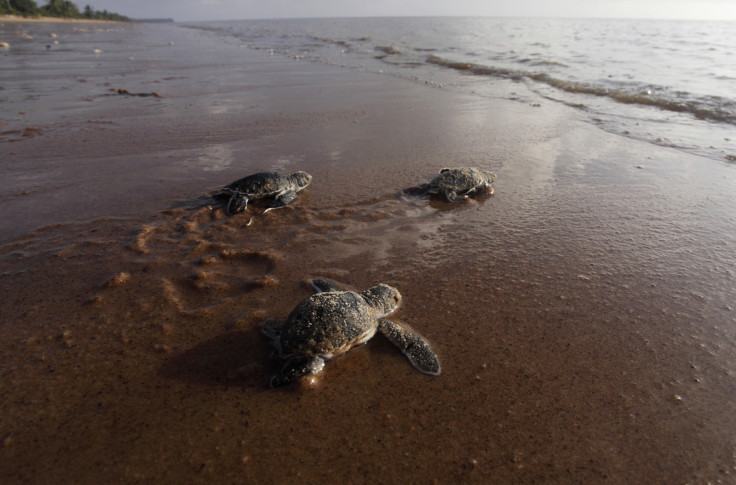Japanese man admits to stabbing at least 30 endangered sea turtles
Fishermen believe that turtles eat all the seagrass, preventing the fish from spawning in the area, which affects their livelihood.
A Japanese man has admitted to killing at least 30 green sea turtles after they got stuck in his fishing nets.
The sea turtles were found dead on a remote island in Okinawa, Japan, with several of them having stab wounds around their necks. They were discovered by the locals during low tide last Thursday.
The unnamed fishing operator told Japan's national daily The Mainichi: ""I disentangled some of the [turtles] and released them into the sea, but I couldn't free [the] heavy ones so I stabbed them to get rid of them."
The police have launched an investigation into the incident, but it is still not clear if any action has been taken, per a report in The Independent.
The fishermen believe that turtles eat all the seagrass, preventing the fish from spawning in the area, which affects their livelihood. They also believe that the turtle population in the region is increasing.
Sea turtles live in nearly every ocean basin in the world and nest on beaches. Around 60 days after the eggs are laid, hatchlings emerge and make their way to the ocean.
Hundreds of turtles are accidentally captured in commercial fishing nets every year, which often leads to drowning. The World Wildlife Fund (WWF) is working with the fishing industry to help reduce the number of turtles captured.
According to the International Union for Conservation of Nature (IUCN), green sea turtles are an endangered species in Japan. The species is considered endangered throughout much of the world.
Local fishermen admitted that they were involved in the massacre.
— 🇯🇵GAMEofALONEness🇺🇦 (@thegameofalones) July 17, 2022
Over 30 slaughtered PACIFIC GREEN SEA TURTLES [#EndangeredSpecies] found with stab marks on their necks on Okinawa islands, Japan. https://t.co/fLpl9PSRV5 pic.twitter.com/UmxcZkNYML
Coastal developments and overfishing have threatened their existence. Thousands of sea turtles also get caught in "ghost gear" (fishing equipment abandoned, lost or discarded in the seas or oceans that take ages to decompose) and eventually die a painful death.
Environmental conditions also have a significant impact on a turtle's life, including the sex of the offspring. The warmer temperatures caused by climate change disrupt the normal sex ratios, resulting in more female hatchlings – which reduces reproductive opportunities and decreases genetic diversity.























